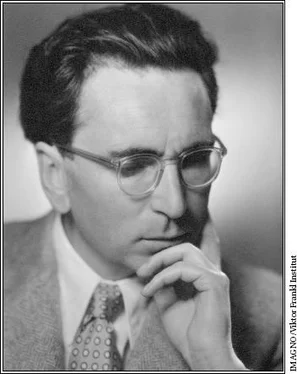I always regarded the discussions about food as dangerous. Is it not wrong to provoke the organism with such detailed and affective pictures of delicacies when it has somehow managed to adapt itself to extremely small rations and low calories? Though it may afford momentary psychological relief, it is an illusion which physiologically, surely, must not be without danger.
During the latter part of our imprisonment, the daily ration consisted of very watery soup given out once daily, and the usual small bread ration. In addition to that, there was the so-called “extra allowance,” consisting of three-fourths of an ounce of margarine, or of a slice of poor quality sausage, or of a little piece of cheese, or a bit of synthetic honey, or a spoonful of watery jam, varying daily. In calories, this diet was absolutely inadequate, especially taking into consideration our heavy manual work and our constant exposure to the cold in inadequate clothing. The sick who were “under special care” —that is, those who were allowed to lie in the huts instead of leaving the camp for work—were even worse off.
When the last layers of subcutaneous fat had vanished, and we looked like skeletons disguised with skin and rags, we could watch our bodies beginning to devour themselves. The organism digested its own protein, and the muscles disappeared. Then the body had no powers of resistance left. One after another the members of the little community in our hut died. Each of us could calculate with fair accuracy whose turn would be next, and when his own would come. After many observations we knew the symptoms well, which made the correctness of our prognoses quite certain. “He won’t last long,” or, “This is the next one,” we whispered to each other, and when, during our daily search for lice, we saw our own naked bodies in the evening, we thought alike: This body here, my body, is really a corpse already. What has become of me? I am but a small portion of a great mass of human flesh … of a mass behind barbed wire, crowded into a few earthen huts; a mass of which daily a certain portion begins to rot because it has become lifeless.
I mentioned above how unavoidable were the thoughts about food and favorite dishes which forced themselves into the consciousness of the prisoner, whenever he had a moment to spare. Perhaps it can be understood, then, that even the strongest of us was longing for the time when he would have fairly good food again, not for the sake of good food itself, but for the sake of knowing that the sub-human existence, which had made us unable to think of anything other than food, would at last cease.
Those who have not gone through a similar experience can hardly conceive of the soul-destroying mental conflict and clashes of will power which a famished man experiences. They can hardly grasp what it means to stand digging in a trench, listening only for the siren to announce 9:30 or 10:00 A.M.—the half-hour lunch interval—when bread would be rationed out (as long as it was still available); repeatedly asking the foreman—if he wasn’t a disagreeable fellow—what the time was; and tenderly touching a piece of bread in one’s coat pocket, first stroking it with frozen gloveless fingers, then breaking off a crumb and putting it in one’s mouth and fi- nally, with the last bit of will power, pocketing it again, having promised oneself that morning to hold out till afternoon.
We could hold endless debates on the sense or nonsense of certain methods of dealing with the small bread ration, which was given out only once daily during the latter part of our confinement. There were two schools of thought. One was in favor of eating up the ration immediately. This had the twofold advantage of satisfying the worst hunger pangs for a very short time at least once a day and of safeguarding against possible theft or loss of the ration. The second group, which held with dividing the ration up, used different arguments. I finally joined their ranks.
The most ghastly moment of the twenty-four hours of camp life was the awakening, when, at a still nocturnal hour, the three shrill blows of a whistle tore us pitilessly from our exhausted sleep and from the longings in our dreams. We then began the tussle with our wet shoes, into which we could scarcely force our feet, which were sore and swollen with edema. And there were the usual moans and groans about petty troubles, such as the snapping of wires which replaced shoelaces. One morning I heard someone, whom I knew to be brave and dignified, cry like a child because he finally had to go to the snowy marching grounds in his bare feet, as his shoes were too shrunken for him to wear. In those ghastly minutes, I found a little bit of comfort; a small piece of bread which I drew out of my pocket and munched with absorbed delight.
Undernourishment, besides being the cause of the general preoccupation with food, probably also explains the fact that the sexual urge was generally absent. Apart from the initial effects of shock, this appears to be the only explanation of a phenomenon which a psychologist was bound to observe in those all-male camps: that, as opposed to all other strictly male establishments—such as army barracks—there was little sexual perversion. Even in his dreams the prisoner did not seem to concern himself with sex, although his frustrated emotions and his finer, higher feelings did find definite expression in them.
With the majority of the prisoners, the primitive life and the effort of having to concentrate on just saving one’s skin led to a total disregard of anything not serving that purpose, and explained the prisoners’ complete lack of sentiment. This was brought home to me on my transfer from Auschwitz to a camp affliated with Dachau. The train which carried us —about 2,000 prisoners—passed through Vienna. At about midnight we passed one of the Viennese railway stations. The track was going to lead us past the street where I was born, past the house where I had lived many years of my life, in fact, until I was taken prisoner.
There were fifty of us in the prison car, which had two small, barred peepholes. There was only enough room for one group to squat on the floor, while the others, who had to stand up for hours, crowded round the peepholes. Standing on tiptoe and looking past the others’ heads through the bars of the window, I caught an eerie glimpse of my native town. We all felt more dead than alive, since we thought that our transport was heading for the camp at Mauthau- sen and that we had only one or two weeks to live. I had a distinct feeling that I saw the streets, the squares and the houses of my childhood with the eyes of a dead man who had come back from another world and was looking down on a ghostly city.
After hours of delay the train left the station. And there was the street—my street! The young lads who had a number of years of camp life behind them and for whom such a jour- ney was a great event stared attentively through the peephole. I began to beg them, to entreat them, to let me stand in front for one moment only. I tried to explain how much a look through that window meant to me just then. My request was refused with rudeness and cynicism: “You lived here all those years? Well, then you have seen quite enough already!”
In general there was also a “cultural hibernation” in the camp. There were two exceptions to this: politics and religion. Politics were talked about everywhere in camp, almost continuously; the discussions were based chiefly on rumors, which were snapped up and passed around avidly. The rumors about the military situation were usually contradictory. They followed one another rapidly and succeeded only in making a contribution to the war of nerves that was waged in the minds of all the prisoners. Many times, hopes for a speedy end to the war, which had been fanned by optimistic rumors, were disappointed. Some men lost all hope, but it was the incorrigible optimists who were the most irritating companions.
Читать дальше












